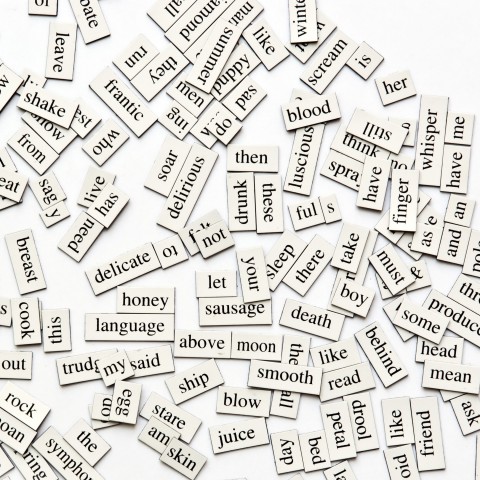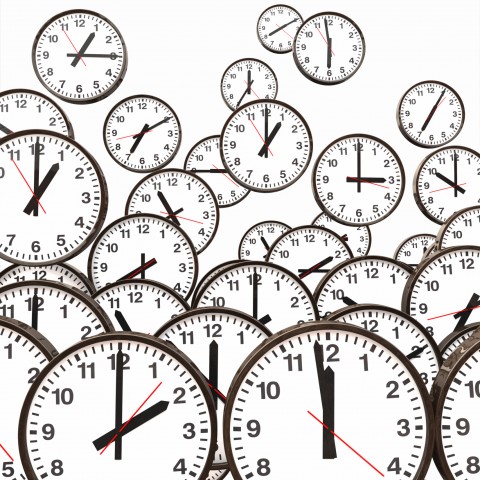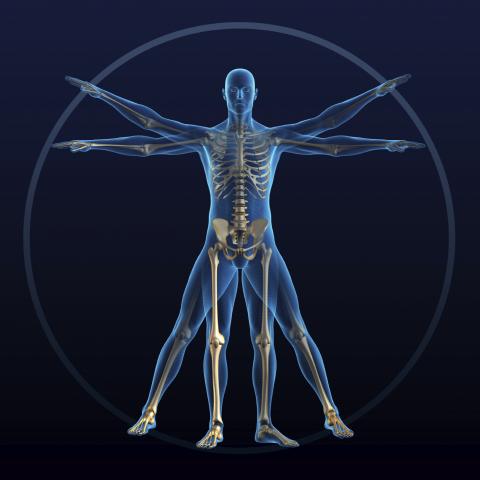 Do you know that the sun, a world, or a spider are guys, while moons, tables, and legs are girls? And these are only a few family-friendly examples of the French nouns genders’ oddity. Wait until you learn about the male and female genital words and their counter-intuitive genders.
Do you know that the sun, a world, or a spider are guys, while moons, tables, and legs are girls? And these are only a few family-friendly examples of the French nouns genders’ oddity. Wait until you learn about the male and female genital words and their counter-intuitive genders.
Figuring out which are the feminine nouns in French is one of the trickiest aspects of the language, and so is the formation of plural nouns, but bear with me for a little while and you’ll learn a collection of useful tricks to help you wrap your head around it!
In this guide, you’ll find a list of the 100 most common and useful French nouns and how to use them. For each of these words, I’ve included the gender, plural form, translation, and example sentences. If you manage to memorize most of the items on this French nouns list, you’ll be pretty far along on your way to talking about a great many things!
 Table of Contents
Table of Contents
- Gender and Plural
- About Time
- Places
- Technology & Internet
- Home, Sweet Home
- City & Transports
- Family & Friends
- Body Parts
- Food & Utensils
- Occupation
- Clothing Items
- Bonus: Communication
- How FrenchPod101 Can Help You Learn More French
1. Gender and Plural

Le vocabulaire (“Vocabulary”)
1- How do you know if a French word is masculine or feminine?
French nouns are either masculine or feminine.For instance, le soleil (“the sun”) is masculine, while la lune (“the moon”) is feminine.
The question of why une araignée (“a spider”) is female and un cafard (“a cockroach”) is male doesn’t matter as much as: How do I know which gender it is?
Luckily, it’s generally quite straightforward, and based on the final letters of a word, you can guess its gender. The rule isn’t entirely accurate, but as you get used to these typical masculine and feminine endings, you’ll be able to make good guesses.
| Usually feminine endings: Most words ending in -e or -ion
| Usually masculine endings: Words ending in -age, -ege, -é, -isme + Everything else.
|
- It would be a tedious and super-boring process.
- This is not how native speakers learn the words’ genders.
If you’re wondering how to remember French nouns’ gender, I instead encourage you to ALWAYS learn new nouns with their article.
- Soleil Un soleil (“A sun”)
- Lune Une lune (“A moon”)
You can also memorize them with a definite article. It’s just a matter of preference.
- Le soleil (“The sun”)
- La lune (“The moon”)

The gender war is declared.
2- How to make French nouns plural
For most nouns, simply add an -s at the end of the word.- Un an -> des ans
- Un jour -> des jours
Nouns ending in -au become -aux.
- Un bateau -> des bateaux
Nouns ending in -ou usually become -ous, but some take a -oux.
- Un fou -> des fous
- Un bijou -> des bijoux
Nouns ending in -al become -aux.
- Un animal -> des animaux
Finally, nouns ending in -s, -x, or -z are invariable.
- Une souris -> des souris
- Un lynx -> des lynx
- Un nez -> des nez
Now that we’ve learned how to determine the gender of French nouns and how to make them plural, let’s move on to our 100 French nouns list!
2. About Time

| Un an; des ans “Year” Une année; des années “Year” | Nous vivons ici depuis dix ans. “We have been living here for ten years.” Nous vivons ici depuis plusieurs années. “We have been living here for several years.” |
An is mainly used when there is a number involved:
| |
| Une semaine; des semaines “Week” | A la semaine prochaine ! “See you next week!” |
| Un mois; des mois “Month” | Le mois de juillet est souvent ensoleillé. “The month of July is often sunny.” |
| Un jour; des jours “Day” | Je viendrai dans trois jours. “I will come in three days.” |
| Une heure; des heures “Hour” | Ce film dure trois heures. “This movie is three hours long.” |
| Quick Tip: How to tell time? In France, you can use the twelve- or twenty-four-hour system.
| |
| Une minute; des minutes “Minute” | Laisse moi deux minutes et on y va ! “Give me two minutes and let’s go!” |
| Un temps; des temps “Time” | Je n’ai pas le temps. “I don’t have the time.” |
- → Make sure to visit our full article about Time as well as our vocabulary list on Talking About Time, with audio recordings to practice your pronunciation. It’s freely available on FrenchPod101!

Une question de temps (“A matter of time”)
3. Places
| Un monde; des mondes “World” | La plus belle plage du monde. “The most beautiful beach in the world.” |
| Un pays; des pays “Country” | Tu as visité de nombreux pays. “You have visited many countries.” |
| Un endroit; des endroits “Place” | J’adore cet endroit ! “I love this place!” |
In Quebec, where French is a bit different, a place is une place.
| |
| Une région; des régions “Region” | C’est le plat typique de ma région. “This is the typical dish of my region.” |
| Une mer; des mers “Sea” | La mer du nord est un peu froide. “The northern sea is a bit cold.” |
| Une forêt; des forêts “Forest” | Il s’est perdu dans la forêt. “He got lost in the forest.” |
| Une montagne; des montagnes “Mountain” | Des vacances à la montagne “Mountain vacations” |
| Un magasin; des magasins “Shop” | Tu peux en acheter dans ce magasin. “You can buy some in this shop.” |
| Une banque; des banques “Bank” | J’ai besoin de retirer de l’argent à la banque. “I need to withdraw some cash at the bank.” |
| Un parc; des parcs “Park” | On se retrouve dans le parc ? “Shall we meet in the park?” |
- → Learn more about how to navigate French cities with our free vocabulary list on places Around Town.
4. Technology & Internet

| Un téléphone; des téléphones “Phone” | Je te donne mon numéro de téléphone. “I’ll give you my phone number.” |
| Un portable; des portables “Mobile phone” | Tu me donnes ton numéro de portable ? “Can you give me your mobile phone number?” |
| Portable VS. Mobile VS. Laptop A common source of confusion, even among natives, is the word portable meaning “mobile phone” and “laptop.” One way to avoid the confusion is to use un mobile or un smartphone instead of un portable when talking about mobile phones. Younger generations also tend to use laptop instead of portable. To be fair, it’s usually easy to guess from the context. | |
| Un ordinateur; des ordinateurs “Computer” | Mon ordinateur est un PC. “My computer is a PC.” |
| Fun fact: PC is also the acronym for the French communist party: Parti Communiste. Is there any risk of ever confusing these two? I wouldn’t bet on it. | |
| Une tablette; des tablettes “Tablet” | Tu as installé l’app sur ta tablette ? “Did you install the app on your tablet?” |
| Une télé; des télés “TV” | Il y a quoi à la télé, ce soir ? “What’s on TV tonight?” |
| Télévision, Télé, or TV? While Télévision is the full word, it’s rarely used in conversations; Télé is far more popular. TV is mainly used in writing. | |
| Un chargeur,;des chargeurs “Charger” | Je peux emprunter ton chargeur ? “Can I borrow your charger?” |
| Internet “Internet” | On n’a pas internet, dans ce petit village. “We don’t have internet in this small village.” |
| Internet (with a capital “I”), internet, or l’internet? Short answer: Whatever you like! (But use “internet” if you wanna sound cool. L’internet is for your grandpa.) Long answer: According to the Académie Française (official patron of the French language), you can use both. However, there was an attempt in 2016 at the national assembly to officialize l’internet over “internet.” Thank goodness, the bill didn’t pass. | |
| Un site web; des sites web “A website” | On ira voir sur le site web de la mairie. “We’ll check on the city hall’s website.” |
Site or Site web? Whichever.
| |
| Un compte; des comptes “Account” | Tu as un compte Skype ? “Do you have a Skype account?” |
| Un mot de passe; des mots de passe “Password” | Je dois réinitialiser mon mot de passe. “I need to reset my password.” |
| How do you say “login?” We often say login, but you can equally say identifiant. | |
| Un fichier; des fichiers “File” | J’ai copié les fichiers sur ma clef USB. “I copied the files on my USB drive.” |
| Un logiciel; des logiciels “Software” | Tu peux installer ce logiciel. “You can install this software.” |
- → Appliances and technology are a vast topic and I’m just scratching the surface here! Don’t miss any words with our free vocabulary lists on Home Appliances, Technology, and the Internet.

La technologie (“Technology”)
5. Home, Sweet Home
| Une maison; des maisons “House”; “Home” | On rentre à la maison. “We’re going home.” |
| Une porte; des portes “Door” | La première porte à gauche “The first door on the left” |
| Une fenêtre; des fenêtres “Window” | Les cambrioleurs ont cassé une fenêtre. “Burglars have broken a window.” |
| Un frigo; des frigos “A fridge” | Ne mettez jamais de vin rouge au frigo ! “Don’t ever put red wine in the fridge!” |
| Ideally, before and after it has been opened, you should keep it out of light and at room temperature. | |
| Une armoire; des armoires “Closet” | On a besoin d’une nouvelle armoire. “We need a new closet.” |
| Une pièce; des pièces “Room” | Ce serait bien d’avoir une pièce en plus. “It would be nice to have one more room.” |
| Une cuisine; des cuisines “Kitchen” | N’oublie pas d’aérer la cuisine. “Don’t forget to ventilate the kitchen.” |
Cuisine also means…well, “Cuisine.” #CaptainObvious
| |
| Un salon; des salons “Living room” | On va prendre l’apéro dans le salon. “We’ll take the aperitif in the living room.” |
| Une chambre; des chambres “Bedroom” | Ma chambre a un plafond intéressant. “My bedroom has an interesting ceiling.” |
| Des toilettes (invariable) “Toilets” | Où sont les toilettes ? “Where are the toilets?” |
| We also use WC, for “water closet.” | |
| Une salle de bain; des salles de bain “Bathroom” | Il y a une autre salle de bain à l’étage. “There is another bathroom upstairs.” |
- → Learn everything about rooms and furniture with our free vocabulary lists on Home Interior and Home Items.
6. City & Transports

| Une voiture; des voitures “Car” | J’ai vendu ma voiture. “I’ve sold my car.” |
| Un bus; des bus “Bus” | Je prends souvent le bus. “I often take the bus.” |
| Un train; des trains “Train” | Je voyage parfois en train. “I sometimes travel by train.” |
| Un avion; des avions “Plane” | J’évite surtout de prendre l’avion. “I especially avoid taking planes.” |
| Un taxi; des taxis “Taxi”; “Cab” | Tu peux m’appeler un taxi ? “Can you call me a cab?” |
| Un vélo; des vélos “Bicycle” | Un vélo de course. “A racing bicycle.” |
| Vélo is short for vélocipède, a word so popular that I learned about it two minutes ago. | |
| Une ville; des villes “City”; “Town” | On se promène en ville. “We’re strolling in town.” |
| Une rue; des rues “Street” | Une rue piétonne “A walking street” |
| Une avenue; des avenues “Avenue” | L’avenue principale “The main avenue” |
| Une route; des routes “Road” | Les routes de campagne sont tranquilles. “Countryside roads are quiet.” |

Les transports en commun (“Public transports”)
7. Family & Friends
| Une mère; des mères “Mother” | Aujourd’hui, c’est la fête des mères. “Today is Mother’s Day.” |
| Ma maman “My mom” | |
| Un père; des pères “Father” | Luke, je suis ton père. “Luke, I am your father.” |
| Mon papa “My dad” | |
| Une femme; des femmes “Wife” (literally: “Woman”) | Ma femme a toujours raison. “My wife is always right.” |
| You can also say Mon épouse (formal) or Ma conjointe (super-formal). | |
| Un mari; des maris “Husband” | Son mari est enseignant. “Her husband is a teacher.” |
| You can also say Mon époux (formal) or Mon conjoint (super-formal). | |
| Un frère; des frères “Brother” | Il t’aime comme un frère. “He loves you like a brother.” |
| Une soeur; des soeurs “Sister” | J’ai deux soeurs et un frère. “I have two sisters and one brother.” |
| Une famille; des familles “Family” | Je passe Noël avec ma famille. “I spend Christmas with my family.” |
| You can also use un parent/des parents, but don’t confuse mon parent (“my relative”) and mes parents (“my parents”). Un parent (“a relative”) or des parents (“relatives”) both refer to relatives of any kind, while mes parents (possessive plural) means: “my parents” (mom and dad).
| |
| Une copine; des copines “Girlfriend” Un copain; des copains “Boyfriend” | Je vais au cinéma avec ma copine. “I’m going to the cinema with my girlfriend.” Laisse tomber, j’ai un copain. “Let it go, I have a boyfriend.” |
| The word copain / copine also means “buddy.” It depends on the context, but it can be confusing even for locals. (Just like when American women talk about their “girlfriends.”) The general rule is:
| |
| Un fils; des fils “Son” | Nous sommes les fils de la Terre. “We are the sons of the Earth.” |
| Une fille; des filles “Daughter” (Literally: “Girl”) | Ma fille aînée. “My elder daughter.” |
| Un ami; des amis “Friend” | Tu es mon meilleur ami. “You’re my best friend.” |
- → To read more about the rest of the family, check out our free vocabulary list on Family Members. And be sure not to miss our special article about The French Family to learn everything on this important topic, from the vocabulary to the cultural aspect of it!
8. Body Parts
| Une tête; des têtes “Head” | Un chasseur de têtes “A headhunter” |
| Un oeil; des yeux “Eye” | Tu as de très beaux yeux. “You have very beautiful eyes.” |
| Une bouche; des bouches “Mouth” | Ouvre la bouche. “Open your mouth.” |
| Un nez; des nez “Nose” | Un piercing au nez. “A nose piercing.” |
The French don’t stand toe to toe, but nose to nose.
| |
| Un cheveu; des cheveux “Hair” | Elle a les cheveux courts. “She has short hair.” |
| Un bras; des bras “Arm” | Viens dans mes bras. “Come into my arms.” |
| Une main; des mains “Hand” | Les mains en l’air ! “Put your hands in the air!” |
The French don’t wear their heart on their sleeve; they have it on their hand.
| |
| Une jambe; des jambes “Leg” | Je me suis cassé la jambe. “I broke my leg.” |
| Un pied; des pieds “Foot” | J’ai déjà un pied dans la tombe. “I already have one foot in the grave.” |
In France, don’t put your foot in your mouth; put it in the dish.
| |
- → Practice your French anatomy by reviewing our free vocabulary list on Body Parts, with audio recordings to improve your pronunciation!

L’anatomie (“Anatomy”)
9. Food & Utensils
| Un couteau; des couteaux “Knife” | Un couteau à fromage “A cheese knife” |
| Une fourchette; des fourchettes “Fork” | J’ai besoin d’une plus grande fourchette. “I need a bigger fork.” |
| Une cuillère; des cuillères “Spoon” | Une cuillère à soupe d’huile “A tablespoon of oil” |
| Une assiette; des assiettes “Plate” | Une assiette de charcuterie “A plate of cold cuts” |
| Un verre; des verres “Glass” | Tu mérites un verre de vin. “You deserve a glass of wine.” |
| Une eau; des eaux “Water” | Je voudrais une carafe d’eau, s’il vous plait. “I would like a jug of water, please.” |
| Un vin; des vins “Wine” | Une cave à vin “A wine cellar” |
| Un fruit; des fruits “Fruit” | Un jus de fruit “A fruit juice” |
| Un légume; des légumes “Vegetable” | Je mange des légumes une fois par semaine. “I eat vegetables once a week.” |
| Une viande; des viandes “Meat” | Viande ou poisson ? “Meat or fish?” |
- → Expand your tableware vocabulary using our list on Food Utensils, available for free on FrenchPod101!
10. Occupation

| Un étudiant; des étudiants “Student” | C’est un très bon étudiant. “He’s a very good student.” |
| Un docteur; des docteurs “Doctor”; “Physician” | Vous avez besoin d’une ordonnance du médecin. “You need a doctor’s prescription.” |
| The most common word for “physician” is médecin. | |
| Un policier; des policiers “Police officer” | Mon frère est policier. “My brother is a police officer.” |
| Un professeur; des professeurs “Teacher” | Je veux devenir professeur de Russe. “I want to be a Russian teacher.” |
| Un avocat; des avocats “Lawyer” | Je ne parlerai pas sans mon avocat. “I will not talk without my lawyer.” |
Avocat also means “Avocado.” Any risk of confusion? Not sure.
| |
| Un serveur; des serveurs “Waiter” | La serveuse a pris notre commande. “The waitress has taken our order.” |
- → Find your profession and your friends’ jobs on our free vocabulary lists: Jobs and Work. We also have a complete article on How to Find Jobs in France. Check it out!

Quelle est votre profession? (“What is your profession?”)
11. Clothing Items
| Un pantalon; des pantalons “Pants” | Un pantalon en cuir “Leather pants” |
| Un pull; des pulls “Sweater” | Un pull en laine “A wool sweater” |
| Un T-shirt; des T-shirts “T-shirt” | J’enfile un T-shirt propre. “I’m putting a clean T-shirt on.” |
| Une chemise; des chemises “Shirt” | Enlève ta chemise. “Take off your shirt.” |
| Un manteau; des manteaux “Coat” | J’ai laissé mon manteau dans la voiture. “I’ve left my coat in the car.” |
| Une chaussette; des chaussettes “Sock” | Mes chaussettes rouges et jaunes “My red-and-yellow socks” |
| Une robe; des robes “Dress” | Une robe en soie “A silk dress” |
| Une chaussure; des chaussures “Shoe” | Des chaussures de randonnée “Hiking shoes” |
- → Work on your French fashion with our free vocabulary list on Clothing Accessories.
12. Bonus: Communication
| Une question; des questions “Question” | C’était une question rhétorique. “It was a rhetorical question.” |
| Une réponse; des réponses “Answer” | J’exige des réponses ! “I demand answers!” |
| Un mot; des mots “Word” | Je ne trouve pas les mots. “I can’t find the words.” |
| Une phrase; des phrases “Sentence” | Je ne comprends pas cette phrase. “I don’t understand this sentence.” |
| Une idée; des idées “Idea” | C’est une très bonne idée ! “This is a very good idea!” |
13. How FrenchPod101 Can Help You Learn More French
In this French nouns lesson and guide, you’ve learned everything there is to know about French nouns, from the feminine nouns in French to the rules of forming plurals. You’ve also learned the key French nouns with our extensive noun list.
Did we forget any important noun that you know? Do you feel ready to explore new conversation topics with your French friends, using everything you’ve learned today?
A good way to practice the words on our basic French nouns list is to start simple, then add more flavor with adjectives.
Adding adjectives to common French nouns will also help you remember the nouns’ gender, as many French adjectives have different forms in feminine or masculine:
- Une pomme (“An apple”)
- Une pomme verte (“A green apple”)
Make sure to explore FrenchPod101, as it has plenty of free resources for you to practice your grammar and learn new words. Our vocabulary lists are also a great way to revisit the words and learn their pronunciation.
Remember that you can also use our premium service, MyTeacher, to get personal one-on-one coaching. Practice using French nouns with your private teacher so they can give you personalized feedback and advice, and help you with your pronunciation.
 About the Author: Born and bred in the rainy north of France, Cyril Danon has been bouncing off various jobs before he left everything behind to wander around the wonders of the World. Now, after quenching his wanderlust for the last few years, he’s eager to share his passion for languages.
About the Author: Born and bred in the rainy north of France, Cyril Danon has been bouncing off various jobs before he left everything behind to wander around the wonders of the World. Now, after quenching his wanderlust for the last few years, he’s eager to share his passion for languages.









